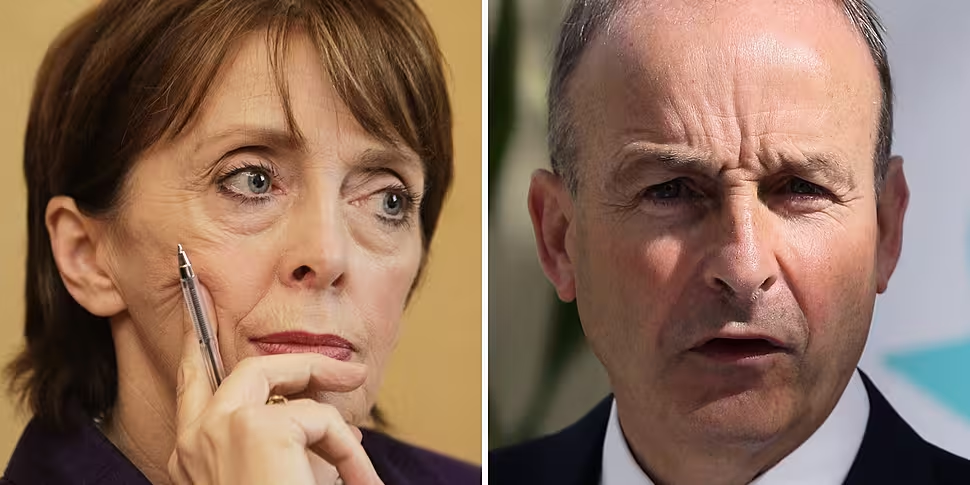Sláintecare is being held back by “vested interests” determined to make money off the health service and “institutional resistance” from key officials in the HSE and Department of Health, Róisín Shortall has told The Hard Shoulder.
The Social Democrats co-leader was speaking after the Sláintecare Implementation Advisory Council (SIAC) suffered its third resignation in a matter of weeks.
Consultant Gastroenterologist Dr Anthony O’Connor last night confirmed his resignation after a meeting with HSE chief Paul Reid and Department of Health Secretary General Robert Watt yesterday.
That followed the resignation Sláintecare’s executive director Laura Magahy and the chair of its implementation advisory committee Professor Tom Keane.
On The Hard Shoulder this evening, Deputy Shortall, the chair of the Oireachtas committee that launched the plan, said the resignations were “enormous blows” to the programme.
She said all three members have issued the same warnings about the programme – and it is now up to Taoiseach Micheál Martin to prove he has the leadership and courage to drive the programme forward.
“They are saying there is a fundamental failure of governance and accountability. That the senior officials are bulldozing the Sláintecare plan,” she said. “And we can’t continue with that.
“You have to ask, who is actually calling the shots here? Is it Government or is it senior officials?
“That is why the Taoiseach has to take responsibility for this. He needs to drive it; he needs to show leadership and courage and this a real test of the mettle of the Taoiseach – whether he actually can achieve healthcare reform.
“He has the plan; it was handed to him; has he got the courage now to drive it through.”
"Vested interests"
Deputy Shortall said the plan is being held back by two things – resistance to change and vested interests determined to make money off the health service.
“Our health service since the beginning of the State has been dogged by vested interests,” she said.
“We have been held back by various vested interests who see the health service as an opportunity to make money. They view it as a commercial thing rather than an essential service – that is the key difference.
“At no point has any minister been prepared to stand up to those vested interests to provide the kind of public health service that people deserve. That is why we are in a situation now with this dysfunctional two-tier system – 900,000 people on hospital waiting lists and hundreds of thousands of other people waiting for community services like Speech and Language or Home Help and other key services.”
"Institutional resistance"
She said senior figures in the HSE and Department of Health are also holding back reform.
“It is becoming very obvious now that the resistance to Sláintecare is based on people not wanting to reform the system,” she said.
“People who are happy to continue with the kind of dysfunction and two-tier system we have and part of that is the profit motive but part of it also is the institutional thing both within the Department of Health hand the HSE.”
Reform
In recent weeks, Department of Health Secretary General Robert Watt has been asked to take control of the process and drive through the needed reform; however, Deputy Shortall said she has no reason to believe he will do so.
“I have to say I have no reason to believe that Robert Watt is committed to Sláintecare and is determined to drive it through,” she said. “I haven’t seen evidence of that to date. I would like to see it, but I haven’t seen it to date.”
You can listen back here:









